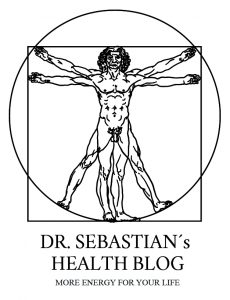Food intolerance and allergies
[toc]
A healthy nutrition, containing a huge variety of unprocessed foods, fruit, and vegetables is key for our wellbeing. However, maintaining such a healthy diet can be more or less difficult for people, especially for people with food intolerances or food allergies.
“If you feel distress, sickness, or pain upon the consumption of
certain foods, you might be hypersensitive to this food”
If you show signs and symptoms of distress, sickness, or pain upon the consumption of certain foods, chances are high you are hypersensitive to this food and should avoid eating it.
Food hypersensitivity
The term food hypersensitivity is used to group two different medical conditions that are related to symptoms upon the consumption of certain foods:
Signs and symptoms of food hypersensitivity can vary greatly between different people and types of food hypersensitivity. Food hypersensitivity can present with signs and symptoms affecting various functions of the body, for example the gastrointestinal tract, the respiratory tract, and/or the skin. People with food hypersensitivity may experience general symptoms like fatigue, headache or migraine, nausea, problematic digestion and vomiting.
“Food hypersensitivity can present with various signs and symptoms“
Whether food hypersensitivity is caused by food allergy or by food intolerance is not an obvious thing, because food allergy and food intolerance do not necessarily present with different symptoms. Generally, the difference between food allergy and food intolerance is your body’s response to food.
“Food allergy and food intolerance can present
with the same signs and symptoms”
Could my symptoms be something else?
If you regularly experience intestinal problems like diarrhoea, bloating, belly pain or skin rashes you should definitely consult the expert advice of a healthcare provider, like a competent physician, doctor or medical practitioner.
Food allergy or food intolerance?
Most hypersensitive physical reactions upon food intake are caused by food intolerance and much more rarely by food allergy.
“Most cases of food hypersensitivity are caused food intolerance”
When you have got a food allergy, your immune system causes the reaction. In contrast, food intolerance is not an allergy. The only way to discriminate between food allergy and food intolerance is a diagnosis by a qualified healthcare provider that involves physical investigation and laboratory tests.
Generally, food allergies
- are caused by one specific (type of) food – like nuts, wheat, milk
- present symptoms relatively quickly – within minutes to several hours
- occur even after eating only small amounts of the food containing the allergen
- can be serious, leading even to a life threatening anaphylactic shock
In contrast, food intolerances
- can be caused by many different foods – like histamine (or salicylate) intolerance
- present symptoms slowly – hours or even days after food consumption
- present stronger symptoms the more food is eaten – the amount matters!
Which type of food causes problems?
Food intolerance
Frequent types of food intolerances are:
- Lactose intolerance
- Gluten sensitivity
- Histamine intolerance
- Glutamate intolerance
- Alcohol intolerance ion
- Salicylate intolerance
Other types of food intolerances are caused by food additives in processed foods, like:
- Artificial sweeteners
- Artificial colouring
- Emulgators
- Other flavourings
Food allergy
These eight foods account for 90 percent of all food allergies:
- Eggs
- Fish (e.g., bass, flounder, cod)
- Milk
- Sea food (e.g., crab, lobster, shrimp)
- Wheat
- Different nuts
- Peanuts
- Tree nuts (e.g., almonds, walnuts, pecans)
- Soybeans


Leave A Comment